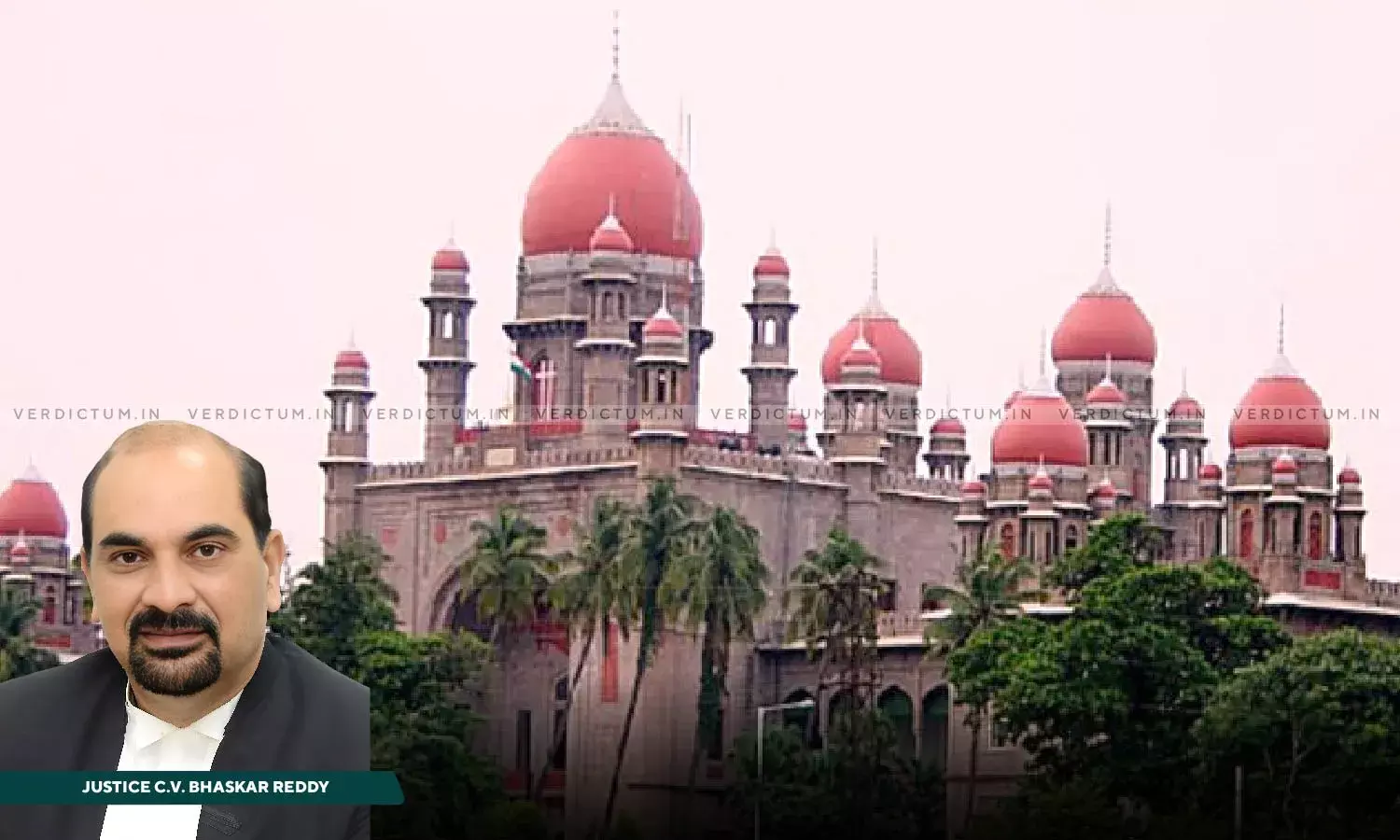Parties Cannot Be Referred To Arbitration If The Notice Invoking It Is Ex Facie Time-Barred: Telangana HC
The Telangana High Court held that a dispute between parties cannot be referred to arbitration when the notice invoking arbitration is ex facie time-barred.
The Court held that the arbitration application was not filed within the period of limitation as prescribed under Article 137 of the Limitation Act and noted that the “notice invoking arbitration is ex facie time-barred, and the disputes between the parties cannot be referred to arbitration in the facts of this case.”
The applicants had entered into Development Agreements-cum-General Power of Attorney with the construction company (Company) for the construction of properties. 7 years after the construction was completed, the applicants invoked the arbitration clause through a legal notice and requested for appointment of a sole arbitrator. The Company refused to resolve the dispute through Arbitration stating that the issue was now time-barred and hence, not maintainable.
A Single Bench of Justice C.V. Bhaskar Reddy observed, “Having taken over possession and enjoying the property since more than 7 years, the applicants are not entitled to invoke the arbitration clause saying that limitation has to be calculated from the date of issuance of legal notice”
Senior Counsel Prabhakar Sripada represented the applicants, while Advocate Vijay B. Paropakari appeared for the respondents.
The applicants filed an Arbitration Application under Section 11(5) & (6) of the Arbitration and Conciliation Act, 1996 (the Act).
The High Court reiterated the settled position of law that mere negotiations do not postpone the cause of action for limitation. Given that the Act does not specify a period of limitation for submitting an application under Section 11, the Limitation Act, 1963 (the Limitation Act) becomes the recourse. Section 43 of the Act provides that the Limitation Act applies to arbitrators, as it applies to proceedings in Court.
To this effect, the Court pointed out, “Since none of the Articles in Schedule to the Limitation Act, 1963 provide a time period for filing an application for appointment of arbitrator under Section 11, it would be covered by the residual provision under Article 137 of the Limitation Act which provides that the period of limitation is three years for any other application for which no period of limitation is provided elsewhere in the division.”
The Court explained that the time limit starts from the period when the right to apply accrues.
The Court held that the applicants, despite notifying the respondents of construction-related issues and loss, have not raised any dispute to resolve the disputes by an arbitrator. As per the agreement, the construction was to be finished within 18 months from the date of the agreement.
The Court noted, “If the respondents failed to comply with the terms and conditions of the Development Agreement, the applicants ought to have issued notice to resolve the dispute by invoking arbitration clause at earlier point of time.”
Given the fact that the applicants were enjoying the property and were in possession for over seven years, the Court concluded that “the applicants are not entitled to invoke the arbitration clause saying that limitation has to be calculated from the date of issuance of legal notice.”
Accordingly, the High Court dismissed the arbitration application.
Cause Title: Sri Athelli Mallikarjun & Ors. v. S.S.B Constructions & Anr.




